Spiritual Meditation – What Is It And What Are Its Benefits?
Feel at peace in discovering the real you hidden deep within and let go of things holding you back.
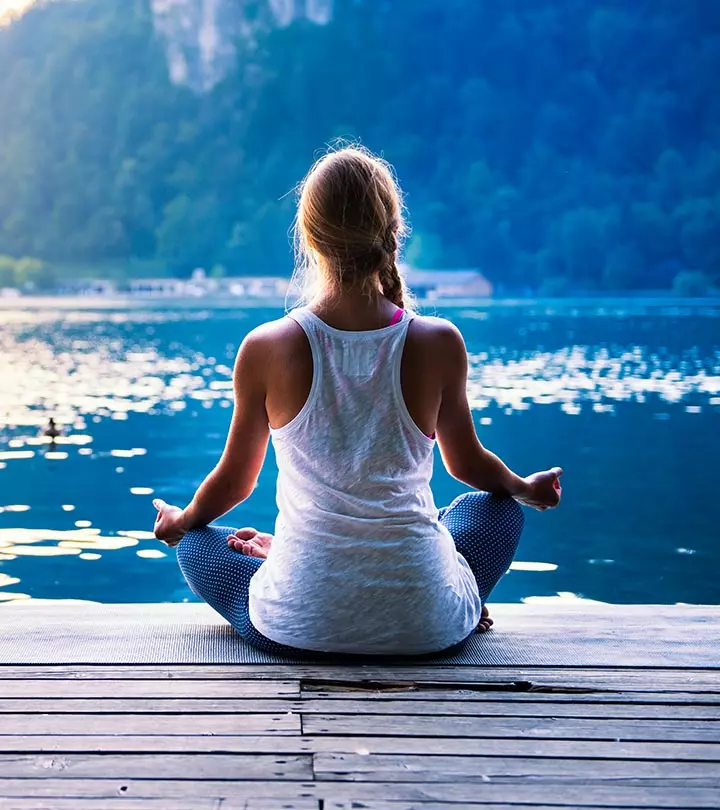
Image: ShutterStock
Do you want to make a significant physical, mental, and emotional transformation in your body? Try spiritual meditation. It will help you calm down, concentrate on yourself, and become conscious of yourself. Unplugging from the world’s hectic energy and listening to what your body is saying takes extra work. Make the extra effort to meditate spiritually and witness the magic that occurs.

In this article, we have explained what spiritual meditation is and how to do it. Keep reading to know more!
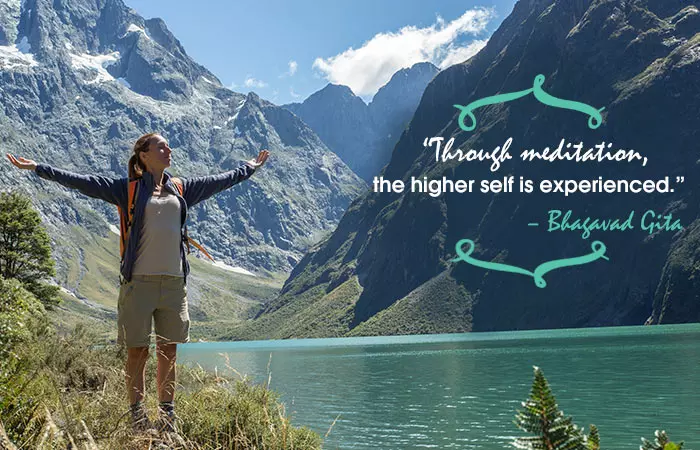
Before that, let’s first learn about spiritual meditation.
 Trivia
TriviaIn This Article
What Is Spiritual Meditation?
Spiritual meditation is an experience that takes you to the depths of who you are.
You, as your real self, are stripped of all the perceptions you had about yourself until that point in your life. In the process, you experience joy and peace. A feeling of love and light warms up your being.
Spiritual meditation makes you realize the eternal truth and let go of all that has happened and will happen. The present is where you want to be and find solace. The need to practice spiritual meditation comes from an innate longing to see and think beyond the chaotic world surrounding you. This will help you in attaining mindfulness, harmony, serenity, tranquility, and self-awareness through introspection and contemplation.
Grace Being, a blogger, tried meditation and wrote her experience in a blog post. She says, “I was quite skeptical about it. I felt stupid closing my eyes for 10 minutes, listening to myself in my head saying that I cannot do it. At the end of the session, I did feel extremely relieved, so I started reading what science says about the benefits of meditation. Being the atheist that I was back then, I needed scientific facts of how and why meditation is beneficial (i)”.
Spiritual meditation is a form of deep meditation that helps you realize the eternal truth and let go of all that has happened and will happen. However, deep meditation can be achieved in any kind of meditation practice; all you need to do is use the proper technique. The approach is everything, even in the case of spiritual meditation.
Now, let’s learn how to do spiritual meditation in the right spirit with the right technique.
Key Takeaways
- Spiritual meditation can be useful to get in touch with your spiritual side and closer to your inner self
- To perform this meditation, you need a silent place, free from any distractions.
- Taking deep and controlled breaths and counting them are essential parts of this meditation.
- During meditation, focus on positive thoughts including gratitude, compassion, and love.
- Dedicate 15 minutes every day to practicing this meditation every day to achieve inner peace.
The Spiritual Meditation Technique
- Choose A Comfortable Position
- Experience The Process
- Acknowledge The Thoughts
- Utter A Prayer
- Reflect On Yourself
1. Choose A Comfortable Position
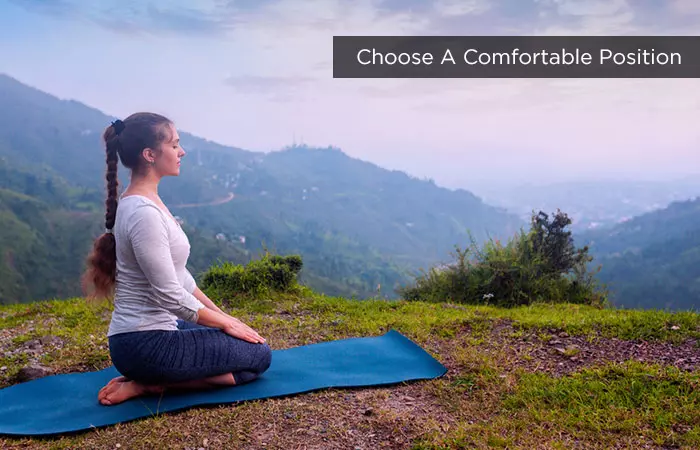
Before you begin the practice, the most important aspect is to find a place and position that you will be comfortable in. This involves staying away from the noises of the city as much as possible and surrounding yourself with greenery and the gentle chirping of birds. Spiritual meditation can quickly put you to sleep. To avoid that, you must be extra cautious of the position you wish to meditate in. Choose a position that you are comfortable in, but not something that is way too relaxing and will make you easily drift into sleep. Sit in the Vajrasana, Padmasana, or the Sukhasana. Or you can even sit on a chair with your back straight, or stand up with your back leaning on the wall. Whatever works. Then, close your eyes lightly.
2. Experience The Process
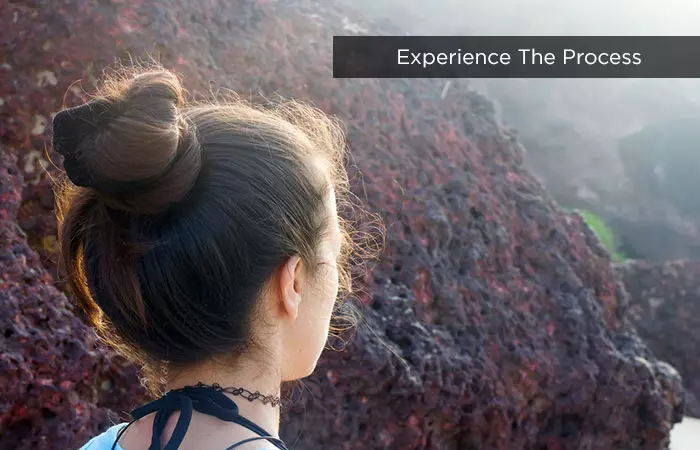
When you have a task to accomplish, what do you usually do? You plan, have the procedure in your head, and follow the pattern consciously. That is how we are used to doing tasks. We plan and execute them in a controlled manner. However, this is not the ideal way to deal with meditation. Here, you will have to let it go. Loosen up and let it take its course in a natural and organic manner. You should be a passive spectator, allowing the process to happen on its own. Do not bother about getting it right or be concerned about the outcome. Let it flow in its natural course.
3. Acknowledge The Thoughts
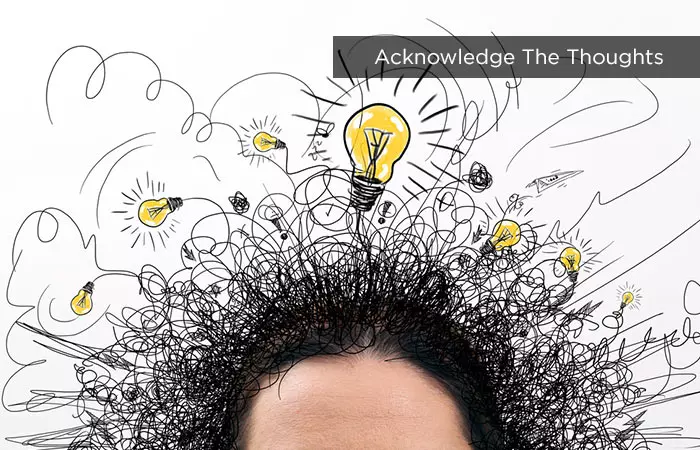
We live in a world that runs on information. You are always fed with new data in the form of live updates, breaking news, and social media. As a result, your mind is always abuzz with new content and your brain’s reaction to it. It is a never-ending game as long as you are awake, and even during sleep, it is quite a task to calm your whirring mind.
You invariably react to every thought and end up being affected by it. Even while you sit to meditate, thoughts will bombard you. But, the challenge lies in not responding to them and allowing them to control you. Let the ideas seep in like they usually do, but control the urge to react to them. Let them waft away, enabling you to get back to your meditation.
4. Utter A Prayer

Now, keep your body loose and relaxed. Breathe naturally and slowly. Observe your breath as it goes in and out. Thoughts interrupt your process, but you know what to do with them. Get back to your body and breathe after every thought interruption. Then, at each exhalation, think of the prayer you chose. Utter it in your head every time you breathe out. Use the prayer as a means to bring back your attention to observing your breath.
5. Reflect On Yourself
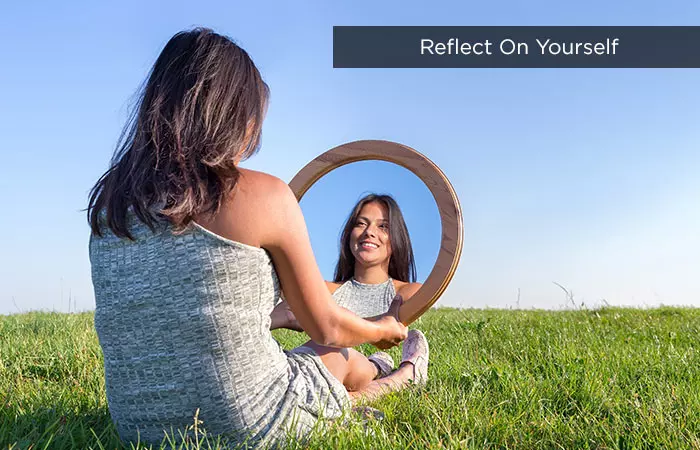
Turn your attention to your body and your awareness and presence in the space. Become conscious of your surroundings. Observe how your body feels. Be attentive to your thoughts and breath. Relax completely and stay calm. Open your eyes slowly and sit in the same position for some time. Let the effects of meditation sink in. Feel it, and enjoy the lightness your body feels. Think about the entire process and how you went about it. Notice how you have become less agitated than before the meditation. Accept that your reaction to the process was natural.
Finally, come out of the meditation zone, stretch a bit, and go about your day.
Challenges And Solutions In Spiritual Meditation
Many people experience difficulties when starting a spiritual meditation practice, such as self-doubt, restlessness, and difficulty focusing. The first step to overcome these obstacles is to acknowledge their existence. Some possible solutions include using guided meditations, creating a regular practice routine, and beginning with shorter sessions to gradually improve comfort. These techniques can gradually develop a greater sense of calm and awareness, increasing the effectiveness and enjoyment of meditation.
With these solutions in place, you will be on your way to experiencing the wide range of benefits that spiritual meditation offers. Scroll down to know more.
Spiritual Meditation Benefits
- Spiritual meditation releases and settles our thoughts and emotions.
- It relaxes your nervous system and helps your body unwind from stress.
- It helps you to let go of the past and sink into peace.
- Spiritual meditation helps you realize who you really are.
- It empowers you and helps you reach your higher consciousness.
These benefits go beyond the individual and help create a more peaceful and harmonious society as more people use meditation for self-reflection and personal growth. As communities grow more mindful, a shift toward compassion and understanding can occur in their collective consciousness.
 Quick Tip
Quick TipThese are some of the benefits of practicing spiritual meditation. But does this method help with sleep problems? Scroll down to the next section to know more.
Spiritual Meditation For Sleep
The spiritual meditation process helps you relax and improve your sleep quality. A study published in ResearchGate found that meditation may help reduce your stress and regulate blood flow to the brain which may help promote better sleep (1), (2).
You can create a state of calmness before bedtime by dimming the lights and chanting gentle mantras. In addition, if you are spiritually inclined, take this time to connect with the divine, surrendering all your worries to the higher power and releasing any tension you might be holding.
Note: Practice spiritual meditation for about five minutes initially, and gradually increase the duration as per your convenience. When people dive deeper into devotion, faith, mysticism, and even asceticism while practicing spiritual meditation they can achieve enlightenment and transcendence with grace.
While its impact on sleep is significant, practicing spiritual meditation throughout the day can enhance overall mindfulness and well-being. Scroll down to know more.
Incorporating Spiritual Meditation Into Daily Life
Including spiritual meditation in your everyday schedule can significantly increase its impact. Here is how to do it:
- Consider setting up a short period each morning before you begin your day or in the evening. This will help set the habit.
- Start by meditating for a few minutes and gradually increase the duration as you get comfortable.
- Create a dedicated space for meditation at home. This can also help establish a consistent routine.
Spiritual meditation is the way to go if you want to dive deeper into your inner self and enjoy true peace and joy. It helps you stay connected with the present, freeing you from the thoughts of the past and future. You can practice this meditation in the position of your choice or that you are comfortable with. If random thoughts are distracting you, you can also choose to recite a prayer or repeat a mantra to regain focus. This type of meditation helps you manage your emotions better, relax the nervous system, and relieve stress.
Frequently Asked Questions
What is self-realization?
When you realize that you are more than the body you reside in and a part of a pure, faithful, and unlimited consciousness, it is called self-realization.
What is the difference between yoga and spiritual meditation?
Yoga is the physical aspect of practicing asanas that help your body prepare for meditation. Whereas, meditation elevates you spiritually, helping you to connect to the higher consciousness.
Is spiritual meditation a science?
Spiritual meditation can be considered a subjective science. It is an ancient organized structure backed by reasoning and observation. Only the practitioner knows the actual effects and process of meditation, and no device can measure that.
What is the difference between spirituality and religion?
The main difference between spirituality and religion is that spirituality is an inward reflection of self and an attempt to merge with the higher consciousness whereas religion is an external practice through ceremonies, rituals, and festivals.
Do I need a Guru to teach me spiritual meditation?
It helps if you find a Guru who can guide you along the right way and make your path to higher consciousness easier. Otherwise, when you evolve in spirituality, by practicing some specific spiritual disciplines for a course of time, you become the light unto yourself – in other words, your own Guru.
Spiritual meditation is a powerful process that is relatively easy to practice. All you need is some time every day to sit and slow down and experience the profound results. It’ll make your life more meaningful, and that’s what you really need. So, buck up and begin.
How do I activate my spiritual power?
Practicing meditation along with praying, journaling, and engaging in physical activities like yoga and dance can help you activate your spiritual power.
Learn how meditation and spirituality can change your life completely. Watch the video below to find out how you can transform your life.
Personal Experience: Source
StyleCraze's articles are interwoven with authentic personal narratives that provide depth and resonance to our content. Below are the sources of the personal accounts referenced in this article.
i. I Experienced Something That Changed My Entire Lifehttps://medium.com/mystic-minds/i-experienced-something-that-changed-my-entire-life-3e366e5dccd6
References
Articles on StyleCraze are backed by verified information from peer-reviewed and academic research papers, reputed organizations, research institutions, and medical associations to ensure accuracy and relevance. Read our editorial policy to learn more.
- The Effect of Meditation in Insomnia due to Stress: A Case Study
https://www.researchgate.net/publication/341627381_The_Effect_of_Meditation_in_Insomnia_due_to_Stress_A_Case_Study - Meditation and Its Regulatory Role on Sleep
https://www.ncbi.nlm.nih.gov/pmc/articles/PMC3328970/
Read full bio of Sri Yogi Anand
Read full bio of Shirin Mehdi
Read full bio of Ravi Teja Tadimalla
Read full bio of Himanshi Mahajan








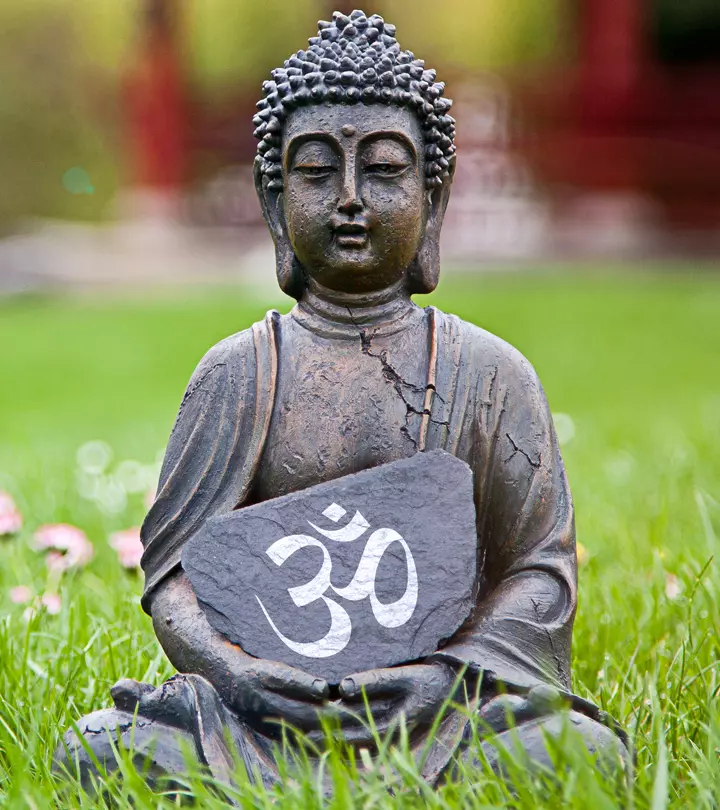


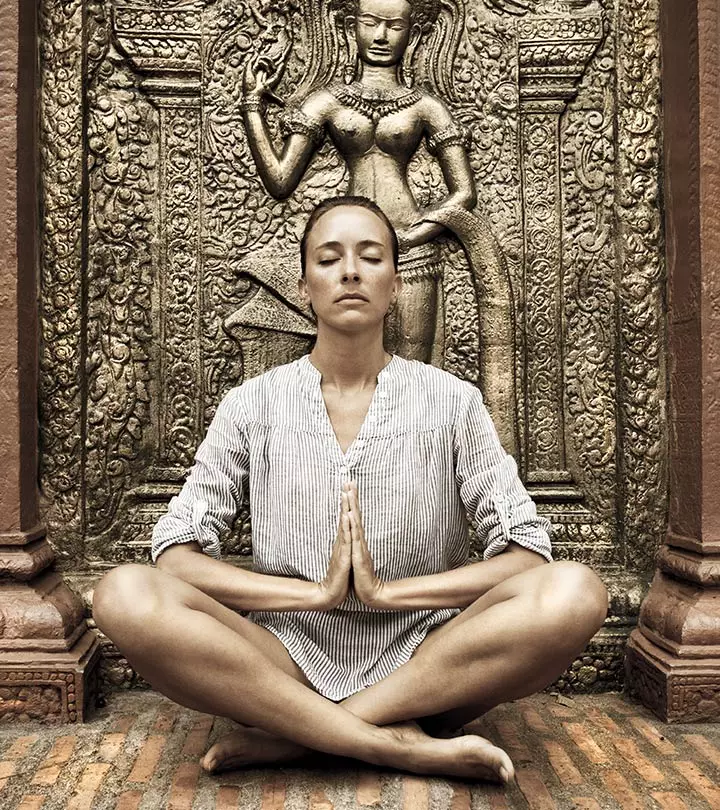
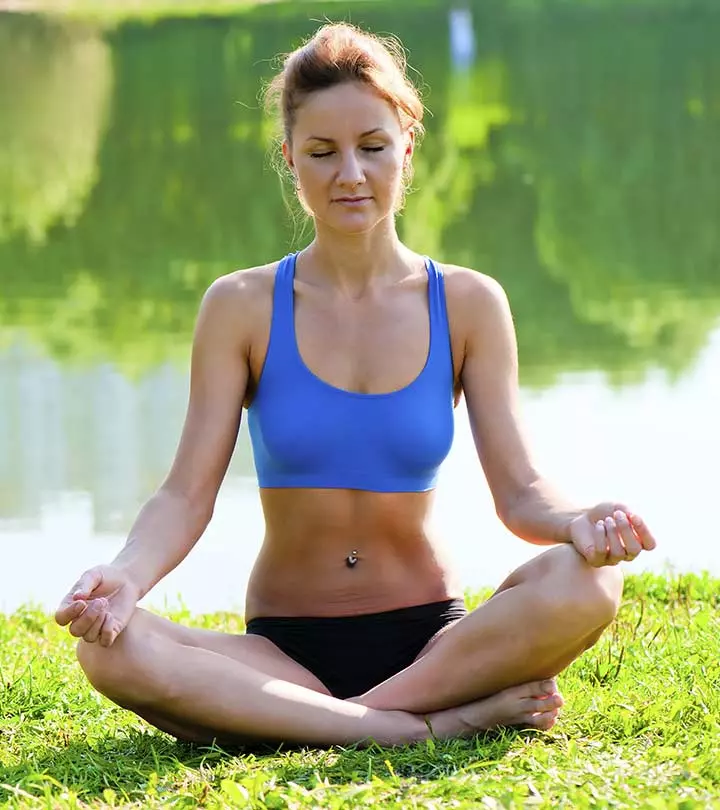
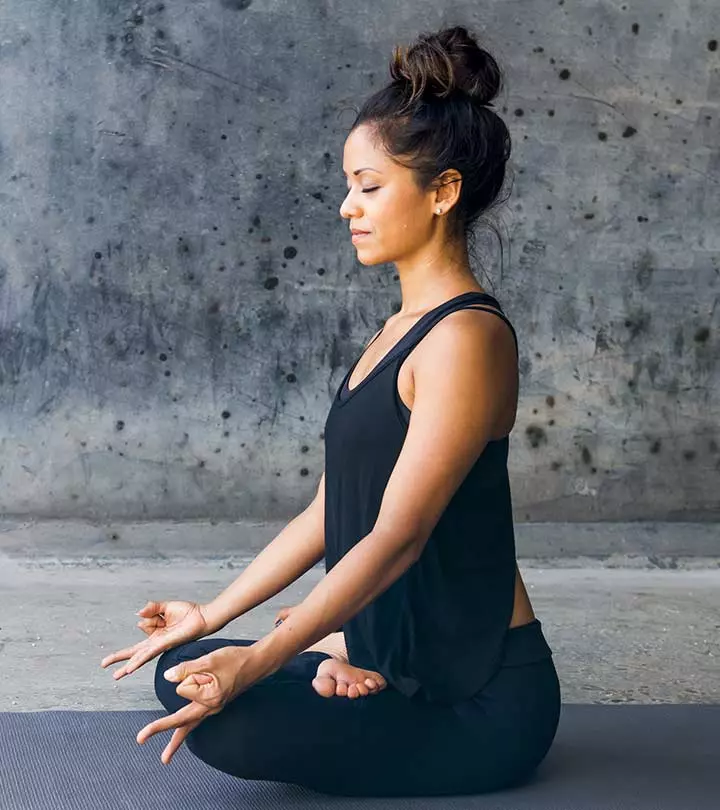
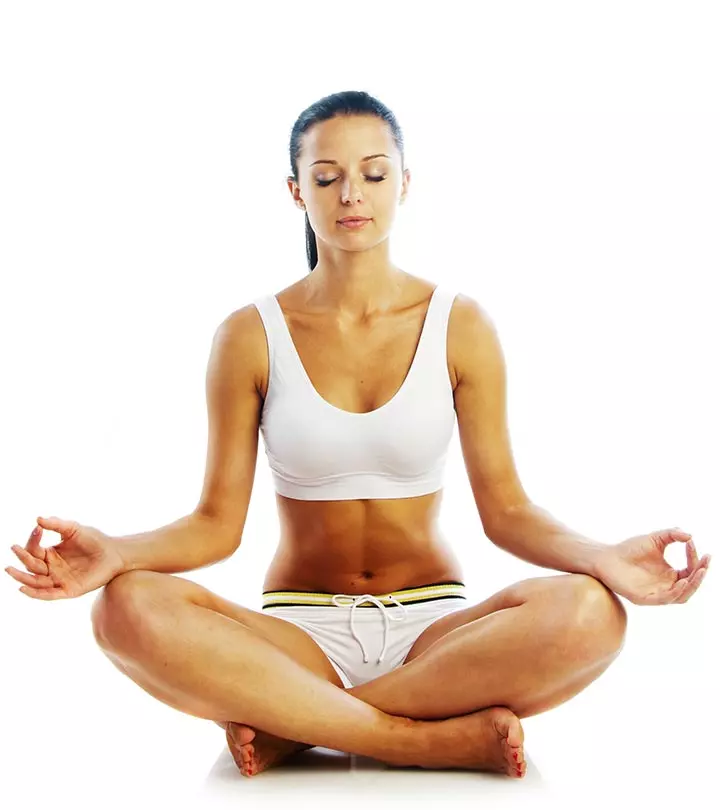
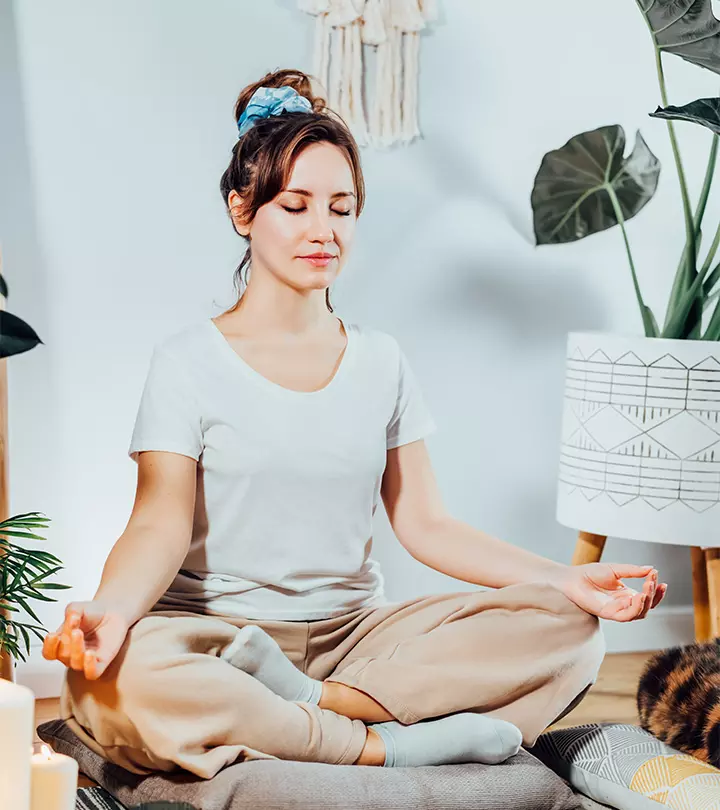


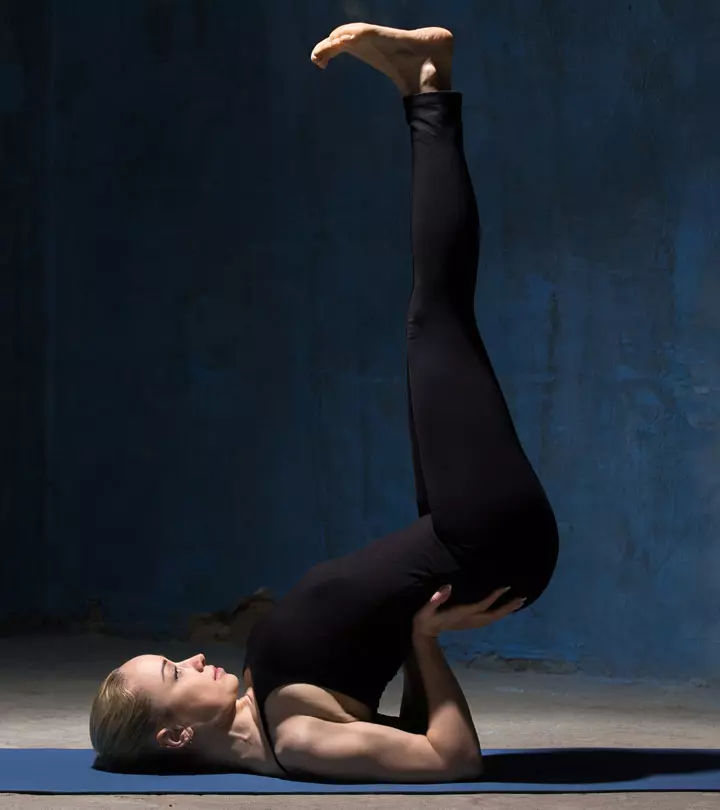



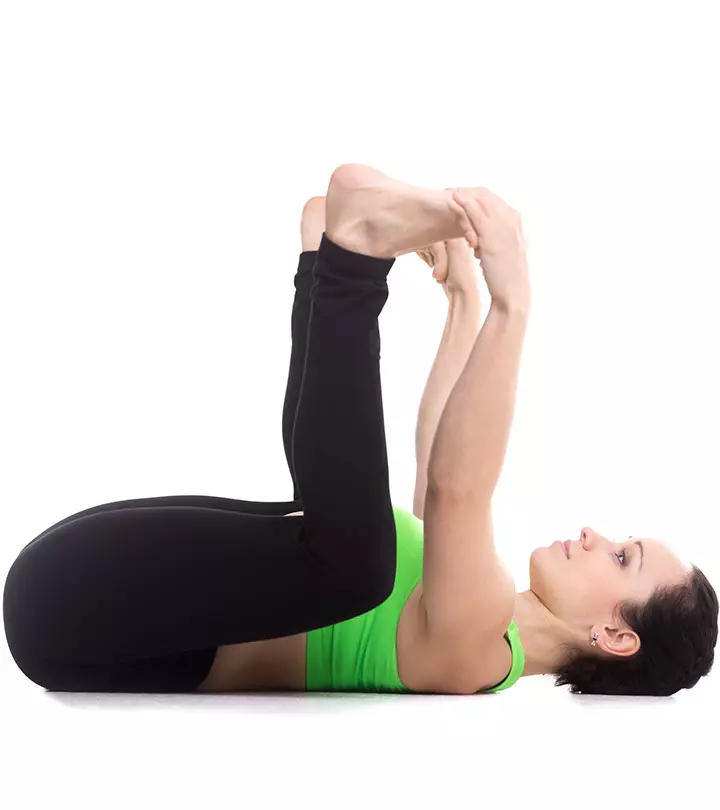




Community Experiences
Join the conversation and become a part of our empowering community! Share your stories, experiences, and insights to connect with other beauty, lifestyle, and health enthusiasts.